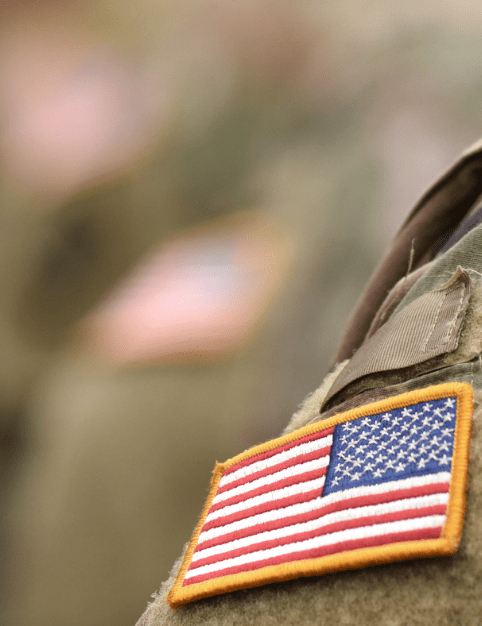Table Of Contents
On August 10, 2013, President Obama addressed VA issues in a speech at the Disabled American Veteran National Convention in Orlando, Florida. President Obama underscored four issues characterized by outstanding relevance. The first issue is TBI and PTSD, which are signature disabilities of veterans from Operation Iraqi Freedom and Operation Enduring Freedom. In the speech, President Obama committed $107 million to “developing more effective ways to prevent, diagnose, and treat mental health conditions like [traumatic brain injury] and [post-traumatic stress disorder].” This funding accompanies the executive order from 2012 directing agencies to develop a National Research Action Plan. The DOD and VA established two joint research consortia to use the $107 million for research. A few universities are involved as well – the University of Pittsburgh, University of Wisconsin-Madison, the Texas Health Science Center in San Antonio, and the Virginia Commonwealth University.
The next topic was the claims backlog. President Obama referred to efforts in reducing the backlog, including hiring new claims processors, mandating overtime, and dedicating VA assets to completing languishing cases. The thrust was to claim progress while admitting the existence of a 600,000 claim backlog. The reasons for the backlog, according to the President, included processing additional claims from Vietnam Veterans for Agent Orange related disabilities, the tremendous influx of veterans into the system, and complexity of claims. The appeal backlog remained unaddressed, which, it appears, is growing.
At least the appeals backlog is growing in St. Petersburg, Florida, which recently received unwanted attention as a particularly overwhelmed regional office. Despite new technology and additional personnel work hours, the trend is that both the VA and Congress are starting to understand that fundamental problem is that VA claims are complex and take time. To manage this reality, the VA and Congress are starting to give veterans the freedom to prepare their own cases – i.e., create a fully developed claim using private doctors, waiving VA assistance in providing medical exams and records research, and paving a way to by-pass involvement in VA bureaucracy. This is the most promising path to success, but full commitment to that freedom would mean allowing veterans to hire advocates to prepare claims. This, it seems, is something the VA is still reluctant to do despite a recently announced partnership with the American Bar Association.
There will be more discussion on that initiative in a later blog, but it is well worth mentioning in passing because the President’s speech was – at its foundations – providing no new information, but did include a sentence or two hinting that future resolution of the backlog does not rest entirely with the VA, but with veterans who want to take advantage of freedom to start controlling their own claims for compensation. This would include, presumably, the freedom to hire an representation before a claim gets stuck in the appellate stages, which – as noted – remains an entirely ignored problem.
The third topic was renewed efforts to reduce veteran unemployment. The unemployment rates for veterans is high – the post-9/11 veteran unemployment rate is 9.9%. The average unemployment rate in the U.S. is 7.4%. These statistics are available from the Bureau of Labor and the Senate Joint Economic Committee. The difficulty with many of the ideas for government policy to reduce veteran unemployment is implementation. Congress controls tax deductions and credits as well as funding for a Veterans Job Corp.
Finally, the President used the speech as an opportunity to warn that sequestration and further budget cutting can cause some hassles; but, the bottom line is that veterans’ benefits programs are safe from cut. The United States will continue to provide health care, compensation, and other benefits. Many veterans, however, do not believe this. Frequently, a veteran will state the view that the VA is delaying compensation with the idea of saving money until a generation of veterans die. Vietnam veterans are, in particular, convinced of this notion. It is understandable given that more and more cancers and serious illnesses are declared officially as related to Agent Orange Exposure as time passes; but, as time passes, more and more veterans of that generation die before the decision is made to award benefits. So, there are many ways to simultaneously pronounce that benefits are safe while – gradually but surely – paring down the awards available.
The speech was interesting and delivered to a veteran friendly group, but a thoughtful evaluation discloses a VA that is slowly and significantly changing the way it does business to address signature injuries of OIF and OEF, shifting the emphasis from VA assistance to greater veteran freedom in preparing claims, focusing on new claims while appeals are arguably ignored, and recognition that budget politics will be an important factor in funding for vocational rehabilitation and health care.
If you need assistance with a VA disability benefits claim, we are here to help. Call Veterans Help Group at (855) 855-8992 or complete our free veterans benefits case evaluation form.

Congress Aims To Streamline Community Care For Veterans
Congress Aims To Streamline Community Care For Veterans Obtaining approval to see a doctor outside...

Major Victory: VA Invests Over $800 Million to Fight Veteran Homelessness
Major Victory: VA Invests Over $800 Million to Fight Veteran Homelessness The Department of...

What is the VA DBQ?
What is a VA DBQ? A VA Disability Benefits Questionnaire (DBQ) is a form used to convey medical...





